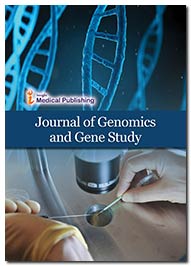Restoring Histone Acetylation Homeostasis In The Neurodegenerative Brain Relieves Epigenetic Transcriptional Repression And Reinstates Cognition.
Abstract
Cognitive impairment is a debilitating hallmark during pre-clinical stages of Alzheimer’s disease (AD) yet causes remain unclear. As histone acetylation homeostasis is critical for early developmental epigenetic gene control, we postulated that its misregulation contributes to cognitive deficits preceding AD pathology. Here, we show that disruption of Tip60 HAT/ HDAC2 homeostasis occurs early in the AD Drosophila brain and triggers epigenetic repression of a group of synaptic genes well before Aβ plaques form. Repressed genes display enhanced HDAC2 binding and reduced Tip60 and histone acetylation enrichment. Increasing Tip60 in the AD brain restores Tip60 HAT/HDAC2 balance, reverses neuroepigenetic alterations to activate synaptic genes, and reinstates brain morphology and cognition. Importantly, levels of Tip60, neuroepigenetic acetylation marks and activation of these same synaptic genes are significantly reduced in hippocampus from AD patients. Genomic reorganization of transcription factories (TFs), characterized as specialized nuclear subcompartments enriched in hyperphosphorylated RNAPII and transcriptional regulatory proteins, act as an additional layer of control in coordinating efficient co-regulated gene transcription. Thus, we asked whether Tip60 utilized this mechanism in its epigenetic control of activity- dependent co-regulated synaptic genes in the brain. Our findings reveal that Tip60 shuttles into the nucleus following extracellular stimulation of rat hippocampal neurons with con
Biography
:Felice Elefant’s research program is focused on understanding the epigenetic neural gene control mechanisms that govern regulation of higher order brain function via chromatin packaging control in neurons. Her research group focuses on understanding the role(s) of specific HATs in cognition and neurogenerative disorders such as Alzheimer’s disease (AD). Her research group generated a robust Drosophila model system that enables them to modulate Tip60 HAT levels in neural circuits of choice under AD neurodegenerative conditions, in vivo. Its use led to their exciting discovery that Tip60 is critical for cognitive processes and protects multiple cognitive neural circuits impaired in the brain during early AD progression. Her group is currently deciphering the mechanisms underlying Tip60 HAT action in neuroprotective gene control using fly and mouse AD models and determining how these Tip60 epigenetic processes go awry in the brains of human AD patients.
Open Access Journals
- Aquaculture & Veterinary Science
- Chemistry & Chemical Sciences
- Clinical Sciences
- Engineering
- General Science
- Genetics & Molecular Biology
- Health Care & Nursing
- Immunology & Microbiology
- Materials Science
- Mathematics & Physics
- Medical Sciences
- Neurology & Psychiatry
- Oncology & Cancer Science
- Pharmaceutical Sciences
